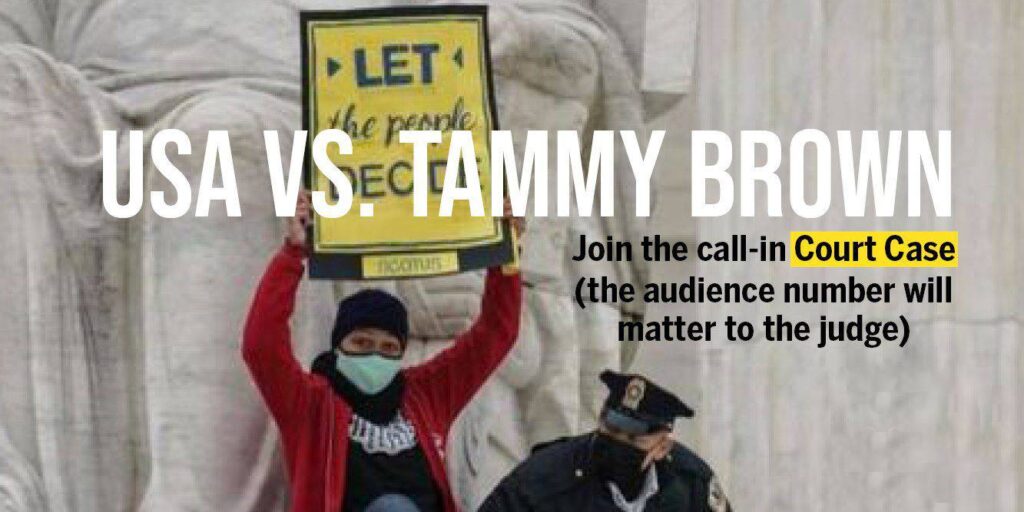
In a clear victory for Tammy Brown, the federal government prosecuting her Class B misdemeanor charges offered a “deferred prosecution agreement” that she accepted upon advice of her lawyer. Under its terms, Brown admits that the government could have proved the case against her, but if she remains of good behavior, such as “engaging in only lawful protests,” for one year, then all charges will be dismissed and she will have a clean criminal record.
The hearing, conducted by telephone conference call due to the pandemic, ended around 11:30am with Brown’s lawyer asking the court to schedule a status conference exactly one year from today on Friday, December 3, 2021, at 10am, for the purpose of allowing the government to formally move to dismiss the case. Obviously suppressing laughter, all of the parties – Brown, her lawyer, the prosecutor and the judge – said they expected to be available.
At Brown’s prior hearing on November 19 (motifri.com/usa-v-tammy-brown-pre-trial-hearing/), Magistrate Judge Michael G. Harvey sounded mildly annoyed with the government prosecutors for not yet having offered “diversion,” a term encompassing a range of alternatives to the 60 days in prison or $5,000 fine, or both, that Brown said in a public October 28 Facebook post – facebook.com/tammy.brown.712/posts/10219994522027565 – constitute the maximum sentence for the offenses charged. The judge, in approving the deferred prosecution agreement today, described the offenses charged as “petty.”
Brown, a regular Motif contributor, was charged for her participation in a protest October 25 outside the US Supreme Court building that she streamed on Facebook Live – facebook.com/tammy.brown.712/videos/10219973699747021 – during which she chained herself to government property. The charges, according to the Womxn Project HQ sponsoring the Facebook event encouraging supporters to call in, are “parading” and “destruction of property.” The protest was against the confirmation and seating of new Associate Justice Amy Coney Barrett. Because of where the alleged offenses took place, the case (20-mj-0217) is in the US District Court for the District of Columbia, and Brown is represented by a federal public defender.
Motif and about 70 other members of the public called in today to hear the proceedings. Brown had encouraged friends and supporters to call in to demonstrate the public interest in her case. It is impossible to know, but reasonable to infer, that the substantial attention to her case were political considerations influencing the prosecutorial leniency toward Brown.